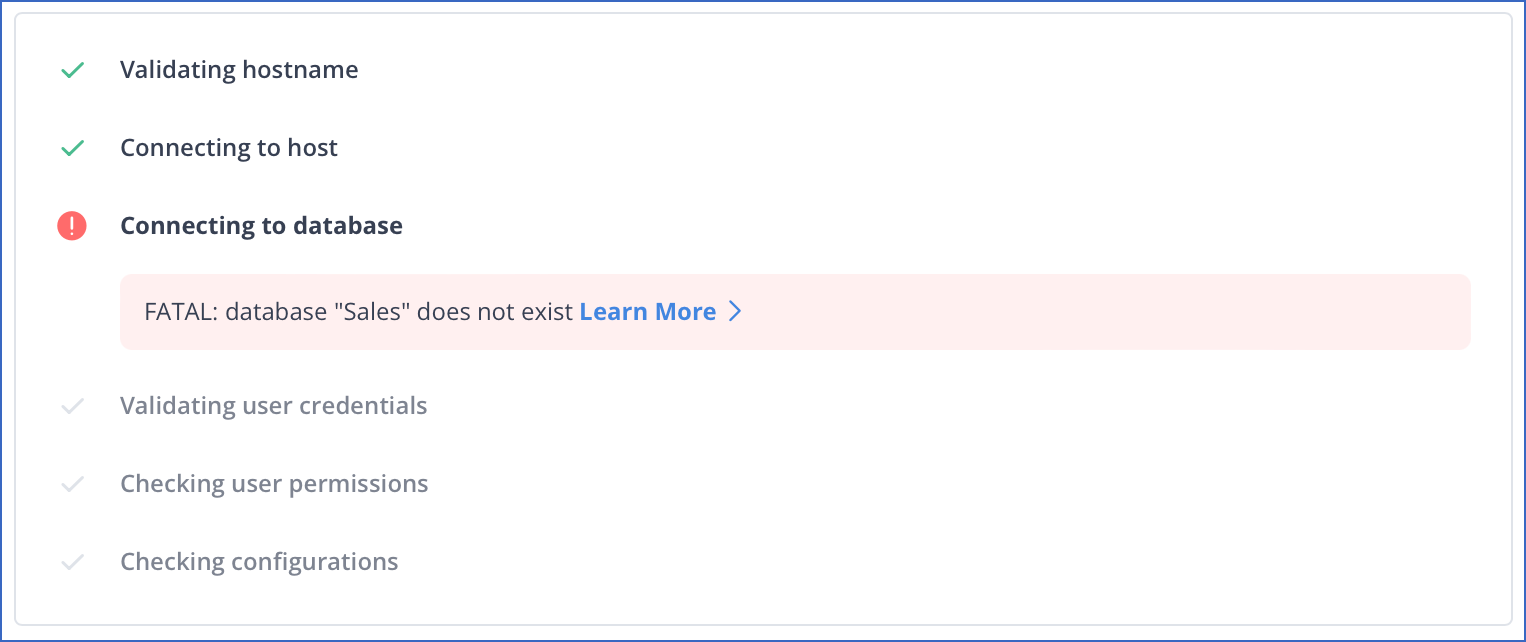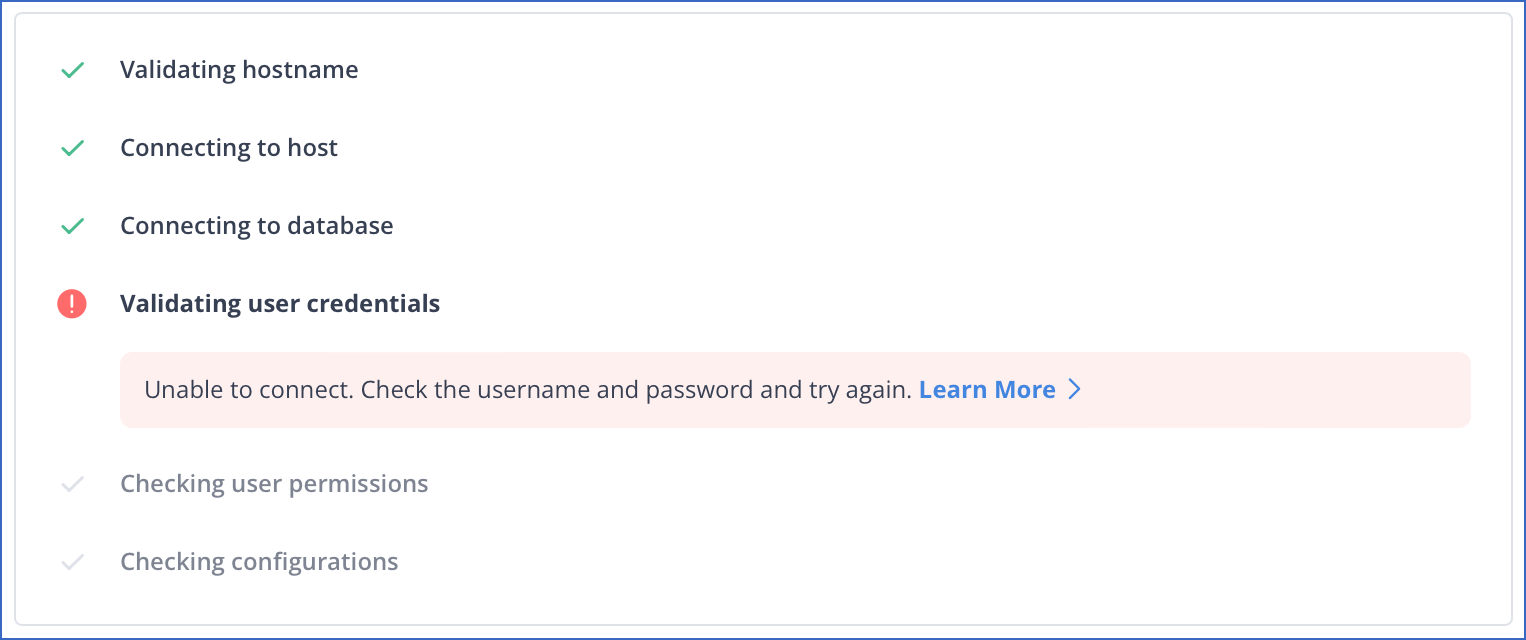Connectivity Check for RDBMS Sources
When you create a Pipeline with the Amazon Redshift, MongoDB, MySQL, Oracle, PostgreSQL, or SQL Server Source, Hevo verifies all the connection settings that you provide. In cases where Hevo is not able to connect to your Source, the connectivity checker displays the list of validations to be performed, to indicate the stage up to which Hevo was able to progress successfully. The checker is invoked during both Pipeline creation and any modification of Source settings post-Pipeline creation. It also displays the stage at which the connection failed, along with the error details and the suggested actions. To resolve the errors, you can also refer to the troubleshooting content displayed in the setup guide on the UI or the respective Source document.
Note: The checker is currently available for Amazon Redshift and all variants of MongoDB, MySQL, Oracle, PostgreSQL, and SQL Server Sources only.
Connection Settings Validation Scenarios
Here are some sample scenarios where Hevo’s connectivity checker comes into force:
-
Incorrect details: Let us say that you are creating a Generic MySQL Pipeline, and you specified the wrong database name. Then, during the connectivity check, Hevo displays the error for the incorrect database name.

-
Insufficient permissions: Let us say that you are creating a Google Cloud PostgreSQL Pipeline, and you did not assign the required permissions to the user role. Then, during the connectivity check, Hevo displays an error, indicating the missing permissions.

-
Expired or modified credentials: Let us say that two days after you created an Amazon Aurora PostgreSQL Pipeline, your database password is changed. The Pipeline would fail as Hevo would be unable to connect using the old password. Then, you can edit your Pipeline settings, and test the connection again.
